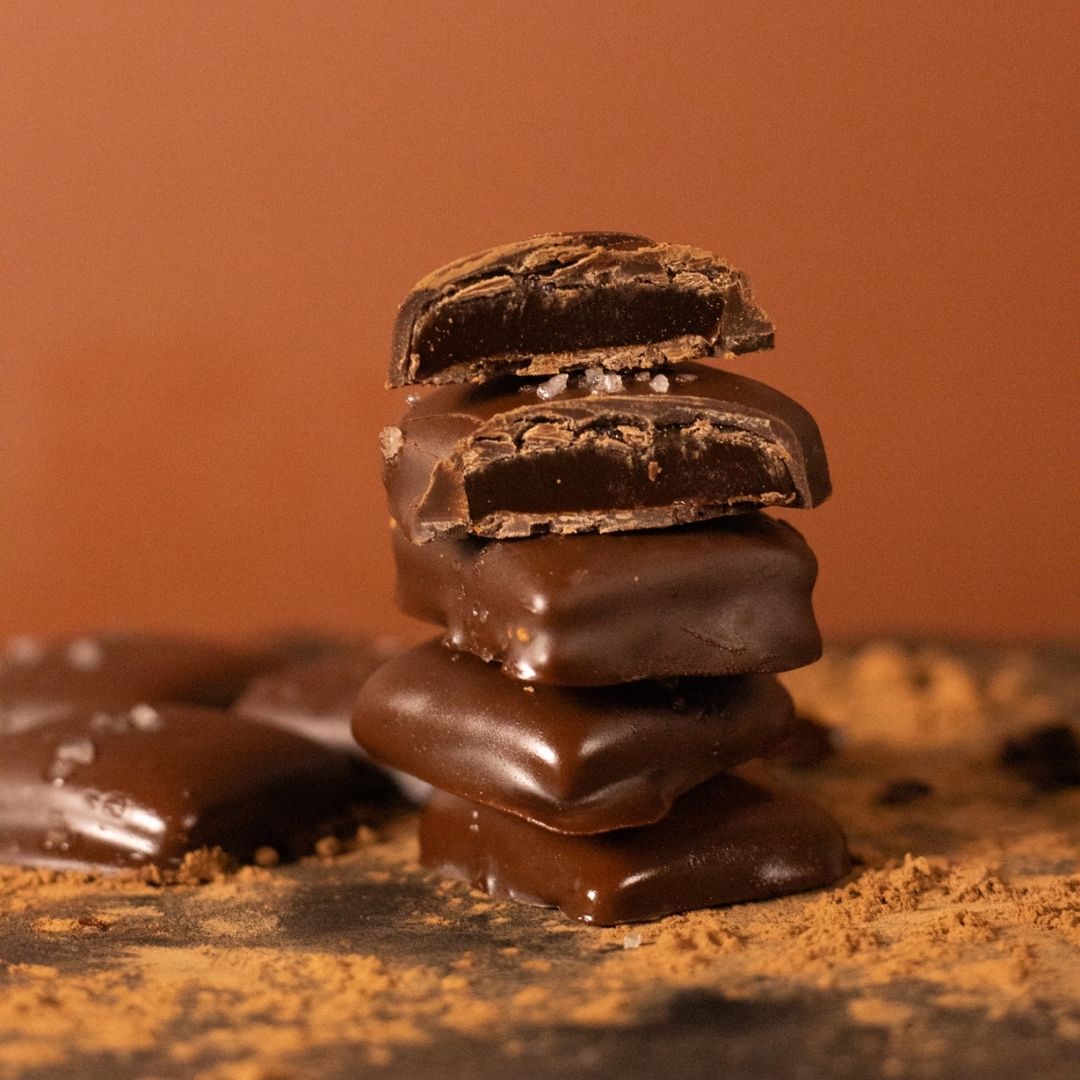White Chocolate and Caffeine: Debunking the Myths
Table of Contents:
- Exploring the Caffeine Content in White Chocolate
- What Is White Chocolate?
- Understanding Caffeine Sources
- Caffeine Levels in Different Types of Chocolate
- Comparing White, Milk, and Dark Chocolate
- Factors Influencing Caffeine in Chocolate
- Health Implications of Caffeine in Chocolate
- Benefits of Low Caffeine Intake
- Potential Risks and Concerns
- How to Enjoy White Chocolate Responsibly
- Choosing Low-Caffeine Chocolate Options
- Best Practices for Sensitive Individuals
- Conclusion
- Frequently Asked Questions
If you're a white chocolate lover with a penchant for indulging in sweet treats, you might be wondering, "Does white chocolate contain caffeine?" This common question often sparks curiosity among chocolate enthusiasts looking to understand the caffeine content in their favorite confectionery.
Whether you're savoring a creamy white chocolate bar or adding it to your desserts, knowing the answer can help you make informed choices about your consumption.
In the world of chocolates, white chocolate stands out for its unique flavor profile and smooth texture. However, when it comes to caffeine content, white chocolate differs from its dark and milk chocolate counterparts.
Exploring the caffeine presence in white chocolate can shed light on how this beloved treat fits into your daily routine. Let's delve into the intriguing world of white chocolate and uncover the truth about its caffeine composition.
Exploring the Caffeine Content in White Chocolate
What Is White Chocolate?
You're probably familiar with the delicious treat known as white chocolate. Unlike its darker counterparts, white chocolate contains cocoa butter, sugar, and milk solids but lacks cocoa solids.
This absence of cocoa solids gives white chocolate its distinct creamy and sweet flavor, making it a popular choice for many dessert recipes.
Understanding Caffeine Sources
When it comes to caffeine, most people associate it with coffee, tea, and dark chocolate. However, white chocolate is a different story.
While milk chocolate contains small amounts of caffeine due to the cocoa solids it contains, white chocolate typically doesn't contain any caffeine at all.
Since caffeine is naturally found in cocoa solids, the absence of these solids in white chocolate means that it's caffeine-free. So, if you're looking to satisfy your sweet tooth without the stimulating effects of caffeine, white chocolate is a great option to consider.
Caffeine Levels in Different Types of Chocolate
Comparing White, Milk, and Dark Chocolate
When looking at white, milk, and dark chocolate, it's essential to understand the differences in their caffeine content.
White chocolate stands out as it doesn't contain cocoa solids, which are where caffeine primarily resides in chocolate products.
This absence of cocoa solids makes white chocolate naturally caffeine-free. In contrast, both milk and dark chocolate do contain cocoa solids, with dark chocolate having the highest cocoa content among the three types.
Therefore, dark chocolate generally contains more caffeine compared to milk chocolate.
Factors Influencing Caffeine in Chocolate
Several factors influence the caffeine content in chocolate products. The key determinant is the cocoa content, where higher cocoa percentages typically result in increased caffeine levels.
Dark chocolate, with its higher cocoa content, tends to have more caffeine than milk chocolate, which contains less cocoa. Additionally, the type of beans used and the processing methods can impact caffeine levels in chocolate.
For those looking to avoid caffeine, opting for white chocolate or lower cocoa percentage milk chocolate can be a suitable choice for enjoying chocolate without the stimulating effects of caffeine.
Health Implications of Caffeine in Chocolate
Benefits of Low Caffeine Intake
Enjoying white chocolate, which is free of caffeine due to the absence of cocoa solids, can be advantageous if you're sensitive to stimulants.
Opting for white chocolate or milk chocolate with lower cocoa content allows you to savor the sweetness without the potential jitters or sleep disturbances associated with caffeine consumption.
By selecting white chocolate over dark chocolate, you can indulge in a treat without worrying about the stimulating effects of caffeine, making it a suitable choice for those looking to limit their caffeine intake.
Potential Risks and Concerns
While chocolate, especially dark chocolate, contains varying levels of caffeine, excessive consumption can lead to unwanted effects. High caffeine intake may cause restlessness, anxiety, or sleep disturbances in some individuals.
Therefore, it's essential to be mindful of your chocolate consumption, particularly if you are sensitive to caffeine. Opting for white chocolate, which is caffeine-free, can be a wise choice if you're looking to minimize your caffeine intake while still enjoying a sweet treat.
Be aware of the caffeine content in different types of chocolates and make informed choices based on your tolerance levels for caffeine.
How to Enjoy White Chocolate Responsibly
Choosing Low-Caffeine Chocolate Options
When it comes to indulging in chocolate while keeping your caffeine intake in check, opt for white chocolate. White chocolate is a great alternative as it does not contain cocoa solids, making it caffeine-free.
If you are particularly sensitive to caffeine or looking to reduce your intake, choosing white chocolate over dark or even milk chocolate can be a wise decision.
Best Practices for Sensitive Individuals
For individuals who are sensitive to stimulants like caffeine, selecting white chocolate ensures you can savor your favorite sweet treat without the worry of caffeine-related side effects.
By opting for white chocolate, you're choosing a delicious, caffeine-free option that allows you to enjoy the taste of chocolate without the potential stimulating effects that may impact your well-being.
Make the smart choice by reaching for white chocolate when you want to indulge responsibly.
Conclusion
White chocolate is a caffeine-free alternative to dark chocolate, making it a suitable option for those seeking a sweet treat without the stimulating effects of caffeine.
By choosing white chocolate or lower cocoa percentage milk chocolate, you can indulge without worrying about excessive caffeine intake.
Enjoying white chocolate responsibly allows you to savor its delicious flavor without the potential risks associated with high caffeine consumption.
Next time you crave chocolate, consider reaching for white chocolate as a smart choice for a caffeine-free indulgence.
Frequently Asked Questions
Is white chocolate caffeine-free?
Yes, white chocolate is caffeine-free because it does not contain cocoa solids, unlike dark and milk chocolate.
Which type of chocolate has the most caffeine?
Dark chocolate has the most caffeine among white, milk, and dark chocolate due to its high cocoa content.
What factors influence caffeine levels in chocolate?
Caffeine levels in chocolate are influenced by factors such as cocoa content, bean type, and processing methods.
Are there health implications of caffeine in chocolate?
Consuming too much caffeine in chocolate can lead to restlessness and anxiety, especially with dark chocolate.
How can I enjoy white chocolate responsibly?
Enjoy white chocolate responsibly as a caffeine-free alternative for those sensitive to caffeine or looking to reduce their intake.

